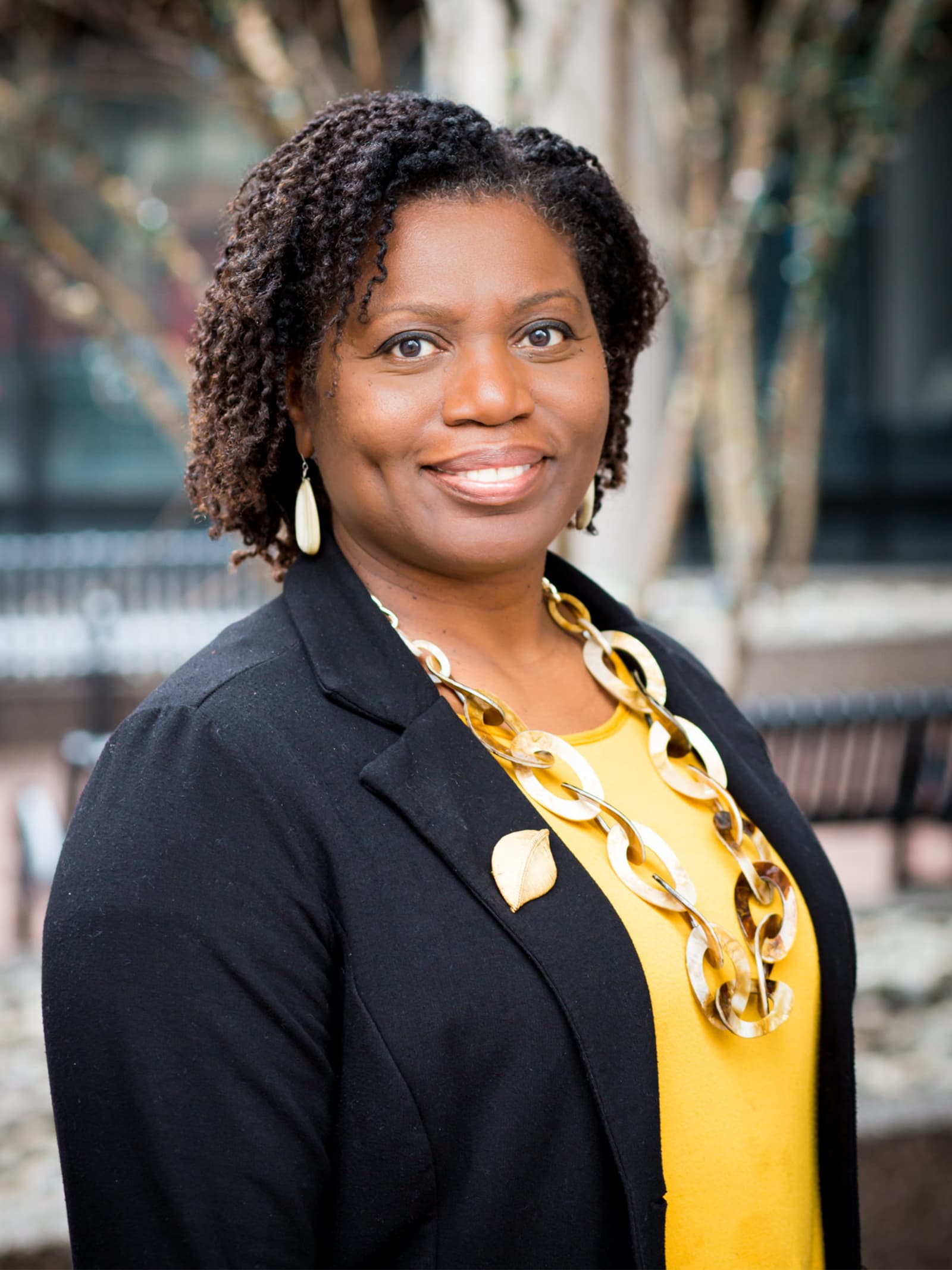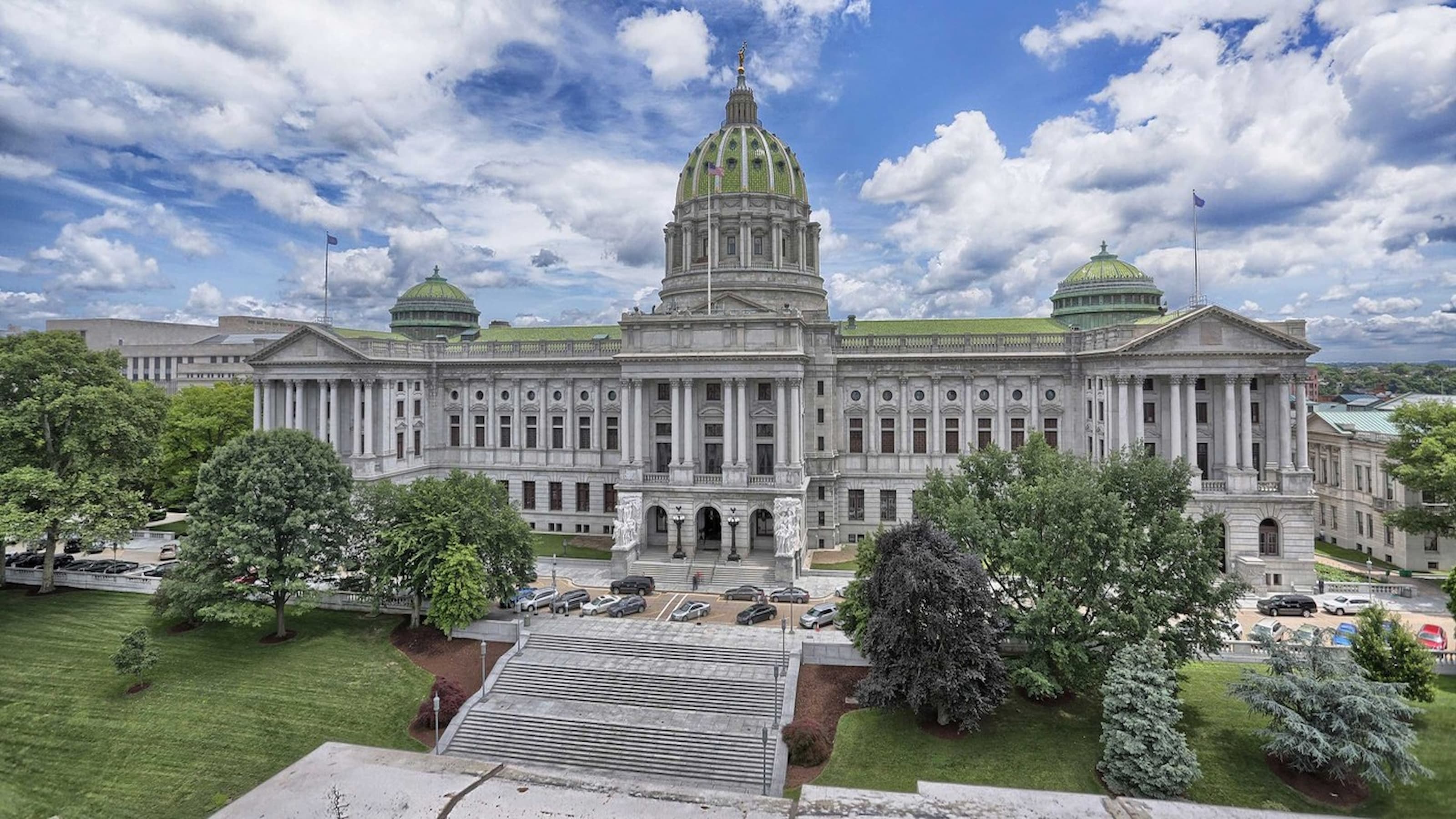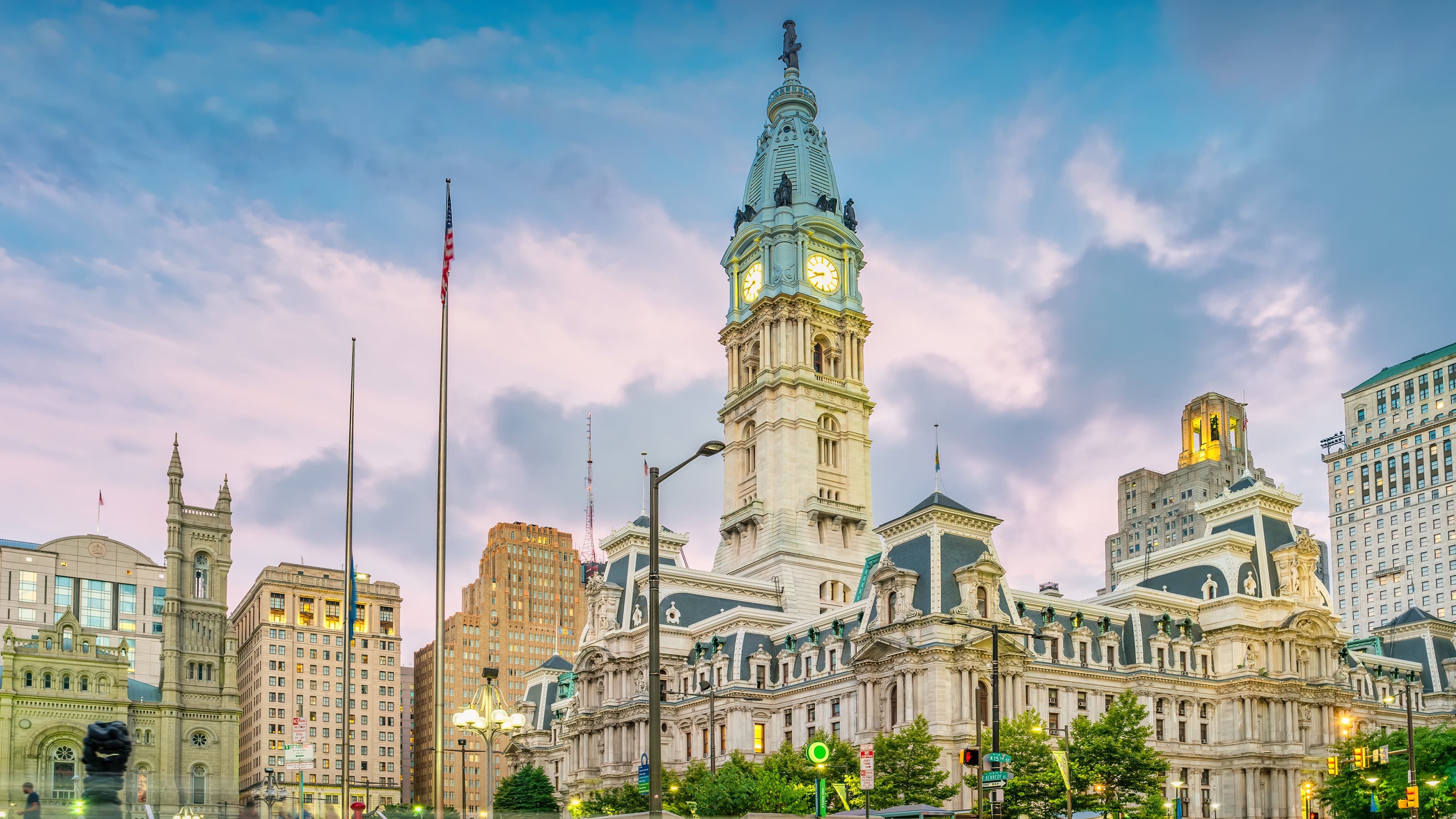A Conversation About Voting Rights in America With Nardi Symposium Keynote Speaker Gilda R. Daniels, J.D.
Saint Joseph’s University students Damaris Gimenez ’23 and Kaitlin Moyer ’23 interviewed nationally recognized voting rights and election law expert Gilda R. Daniels, J.D., in advance of the upcoming Hon. Joseph N. Nardi Symposium on Law and Justice.


Nationally recognized voting rights and election law expert Gilda R. Daniels, J.D., will discuss voter suppression and the right to vote as part of the Hon. Joseph N. Nardi Symposium on Law and Justice at Saint Joseph’s University on Wednesday, Oct. 20, at 7 p.m. in the Cardinal John P. Foley Campus Center. Daniels is currently a professor of law at the University of Baltimore Law School and the director of Litigation for Advancement Project’s National Office, a multi-racial civil rights organization. She is the author of the book “Uncounted: The Crisis of Voter Suppression in America.”
Saint Joseph’s students Damaris Gimenez ’23 and Kaitin Moyer ’23, who both read her book in their current political science course, had an important conversation with Daniels in advance of the event about her best-selling book and voting rights in America. Dirk Warren ‘50 Sesquicentennial Chair and Professor of Political Science Susan Liebell, Ph.D., moderated the conversation.
Liebell: Welcome to Saint Joseph’s University! In two classes, my students have engaged with your book, “Uncounted: The Crisis of Voter Suppression in America,” and today two of them are here to ask you some questions. Damaris Gimenez is a philosophy major and Kaitlin Moyer is a political science major. They are both juniors and I’ll turn it over to them.
Gimenez: What sparked your interest in voter suppression and what part of your legal background inspired you to write “Uncounted”?
Working in the Department of Justice, as a staff attorney, sparked my interest in voting rights. I left, continued voting rights litigation, and eventually returned to the Department of Justice as deputy chief. There were moments when I was tempted to focus on other types of civil rights litigation, but voting is central to our existence.
I'm honored to concentrate and focus on that area. It continues to spark my interest. We are finding that more and more people are paying attention to voting rights and elections. It's extremely important not just in the area of litigation, but also important for democracy. Voting rights is something we have to get right and we’ve been continually getting it wrong; we can do better. I want to serve as a voice so we can have a true democracy where everyone can participate freely, fairly and without discrimination.
I want to serve as a voice so we can have a true democracy where everyone can participate freely, fairly and without discrimination.
Moyer: Throughout the book you talk about the parallels between voter suppression during the Reconstruction Era, the Civil Rights Movement and currently. Your book asks the reader to connect past voter suppression (associated with violence and Jim Crow) to contemporary voter suppression focused on documentation and procedure. In what ways do you think voter disenfranchisement has changed and what ways has it consistently stayed the same?
Voter suppression comes in cycles. While the names of the disenfranchising forms may change, whether it is a poll tax or felon disenfranchisement, voter suppression and its impact, particularly on the youth and individuals of color, is incessantly prevalent in America.
We live in a country on the foundation that all people are created equal, yet only certain people get to vote because there are so many impediments in place, hindering one’s ability to truly practice their constitutional right. These rules, whether it's the question of how long you've resided in the area, your age, request for a certain form of ID, or going to the correct polling place, continuously create barriers for people to successfully vote. So, while we may not see the dogs and water hoses or public signs of discrimination of the past, these “invisible barriers” are just as dangerous, as they determine who does and does not have the right to vote.
Gimenez: Some people are familiar with the Voting Rights Act (VRA) — and some changes that have been made by the Supreme Court in a recent ruling, Shelby v. Holder. Why is it important to understand the Voting Rights Act of 1965 for the present climate?
The VRA has been called a monumental piece of legislation and the “most effective” piece of legislation in our country’s history. With the disenfranchisement mechanisms in place, Black and Brown voter registration and participation rates were extremely less than white voters. A disparity caused by poll taxes, violence and other measures that were put in place to make sure that Black and Brown people could not register. Congress understood the need for VRA.
Section 5, one of the important provisions of the Act, required certain jurisdiction to get federal approval (preclearance) of voting changes before implementation. Shelby got rid of section 5, saying the method of choosing which jurisdictions had to submit for preclearance was outdated It removed the ability of the federal government to preempt discriminatory changes before they could take effect.
Post-Shelby, a place like Texas can pass a law, as they did in 2020, to have only one drop box in each county — even the third largest county in the country, Houston, who had previously had eight. Without Section 5, the change can go into effect without federal review. Section 2 of the VRa provides the ability to challenge the law, but it is reactive, not preemptive. There are efforts to restore what has been dismantled by the SCOTUS in Shelby, but gridlocks make that a challenge.
Moyer: In your book you write about how giving African Americans the power to vote and dictate political outcomes made segregationists “uncomfortable.” What do you mean by this description of uncomfortableness and why do you think this is?
I think “was or is” is the operative term here. If we look back to the time of the Reconstruction Era, this was the first time any country had experienced a multi-racial democracy. Men of color took advantage of this opportunity by registering, voting and getting elected. This made white people, particularly white men of power and white people in the South, extremely uncomfortable.
The idea that men of color, who were not even a generation away from enslavement, were being elected into positions of power made white people uncomfortable for lack of a stronger word. As for today, the fact that “these people” can elect and put people in office fills others with unease as they want to maintain the power of decision making. As the number of people of color registering and voting grows, we will see a shift in power. This makes people in power uncomfortable. People don’t give up power willingly. As Frederick Douglass said, “Power concedes nothing without a struggle.” We’re in a struggle for democracy. I continue to encourage people to run for office, too. I think it is important that we ask ourselves what democracy truly is and explore for an answer.
I believe in the power of the people and I don't think we fully understand the power we have.
Gimenez: What do you think the changing demographic of America means in terms of this modern fight for voting rights? How does it differ from the fights we’ve seen in our history before for these same rights?
The right to vote has always impacted people of color, from Native Americans, Latinx and Asian Americans, etc. Their ability to register has been challenged throughout this country. In less than 15 years, white people will no longer be the majority race and this makes [white] people uncomfortable. How do you maintain power if you are not the majority?
Those ways are to implement what we are seeing now, i.e, make it harder for people to vote. During the pandemic, we saw the easing of access to the right to vote, with no excuse absentee ballots and early voting. We are witnessing a reversal that impacts access. Not allowing everyone to use easy voting options maintains power, because we saw that if we provide options that make it easier to participate, people will use them.
Moyer: For those interested in fighting this battle of voter suppression, what are some ways both big and small individuals can fight to make a change?
I get so excited about what people can do! Certainly, one way to fight back is by having more conversations like this. I think it is really important that you are talking about voting on your campus, especially since it is not a presidential election year. We focus so much time on the presidential election that we forget to focus on other elections such as school boards, and judges. While these elections may seem smaller on the surface, they impact our everyday lives. I think we also have to recognize that this is a long fight and we must continue to do the foot soldier work of continuously registering people to vote, talking with friends and family about registering and upcoming elections, and bringing people to campus to continue having these powerful conversations. For those interested in working on the subject of voter suppression and other similar areas, getting involved and supporting those groups and their causes is very important, particularly on a college campus.
To end on a positive note, I hope people see the book as an action item. The importance of this book is that it is not just a nice on-the-shelf book. It is a book that educates people so they can DO something. I believe in the power of the people and I don't think we fully understand the power we have. When we use this power by offering people chairs or supplying water in voting lines or whatever it is to support others so they can vote, we can become hopeful. I end my book on a hopeful note that while our democracy may not be as strong as I'd like, I am optimistic that this book can help make our democratic state stronger.
The event is sponsored by the SJU Law Alumni Endowment. A free CLE credit will be available for all attorneys who attend. Visit here to register for the event.



